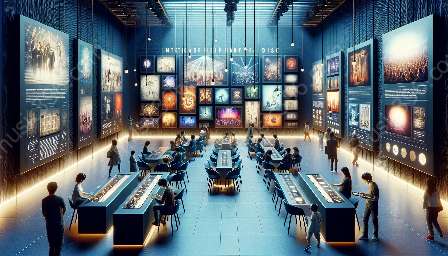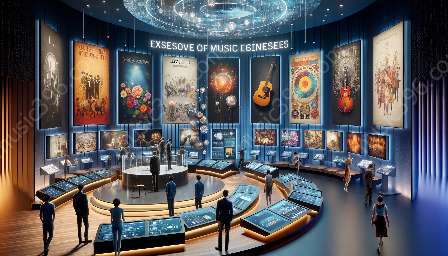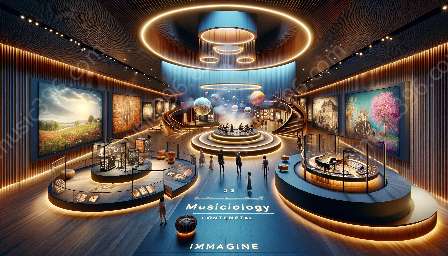The digital age has significantly impacted the practice of musical composition analysis, revolutionizing the way musicians and musicologists approach the study of compositions. With the advent of digital technologies, the process of analyzing musical compositions has been transformed, offering new tools, methodologies, and research opportunities. In this article, we will explore the profound influence of the digital age on the practice of musical composition analysis and its implications for musicology.
Digital Technologies and Musical Composition Analysis
The emergence of digital technologies has revolutionized the study of musical compositions by providing advanced tools for analysis, visualization, and interpretation. Digital audio workstations (DAWs) have empowered composers and analysts to manipulate and analyze musical elements with unprecedented precision. Through these platforms, composers can experiment with various musical structures and elements, access a wide range of virtual instruments, and apply digital effects to shape the sonic landscape of their compositions. In addition, DAWs enable musicologists to dissect and explore the intricate details of a composition, unveiling hidden complexities and structural nuances that were previously challenging to discern.
Furthermore, the development of music notation software has streamlined the process of transcribing and analyzing musical scores. With these digital tools, musicologists can annotate scores, analyze harmonic progressions, and generate visual representations of musical structures, fostering a deeper understanding of compositional techniques and stylistic nuances. The integration of optical music recognition (OMR) technology further enhances the analytical capabilities of musicologists, allowing for the conversion of physical scores into digital formats and facilitating comprehensive analytical procedures.
Data-Driven Approaches to Composition Analysis
The digital age has facilitated the adoption of data-driven approaches to composition analysis, enabling musicologists to harness the power of computational techniques and statistical analysis to gain new insights into musical structures and stylistic trends. Large-scale digital repositories of musical compositions, such as digital libraries and online archives, have provided musicologists with vast amounts of data for analysis, allowing them to explore patterns, correlations, and compositional trends across different musical genres and historical periods.
Moreover, the application of machine learning and artificial intelligence has revolutionized the identification and analysis of musical patterns and stylistic characteristics. Through machine learning algorithms, musicologists can uncover intricate relationships within musical works, identify recurring motifs and themes, and discern compositional patterns that might have eluded traditional analytical approaches. This data-driven paradigm has not only enriched the practice of musical composition analysis but has also contributed to the development of new analytical methodologies and interdisciplinary research avenues, bridging the gap between musicology, computer science, and data analytics.
Global Collaboration and Interdisciplinary Research
The digital age has facilitated global collaboration and interdisciplinary research in the field of musical composition analysis. Digital platforms and online repositories have fostered a vibrant community of scholars, composers, and analysts, enabling them to share research findings, collaborate on analytical projects, and engage in cross-cultural dialogue about diverse musical traditions and practices. As a result, musicology has transcended geographical boundaries, allowing musicologists to explore a rich tapestry of musical compositions from various cultural contexts and historical periods.
Furthermore, the digital age has catalyzed interdisciplinary research initiatives, bringing together experts from musicology, acoustics, psychology, and computer science to investigate the multifaceted dimensions of musical composition analysis. By integrating diverse scholarly perspectives and methodologies, interdisciplinary research endeavors have yielded rich insights into the cognitive, perceptual, and cultural aspects of musical composition, shedding light on the human experience of creating and interpreting music within a digital framework.
Challenges and Ethical Considerations
While the digital age has engendered profound transformations in the practice of musical composition analysis, it has also brought forth a set of challenges and ethical considerations. The proliferation of digital content and the ease of access to vast musical archives have raised questions regarding intellectual property rights, copyright infringement, and fair use practices in the context of composition analysis. Musicologists and analysts must navigate the complex terrain of copyright laws and ethical guidelines to ensure responsible and ethical use of digital resources while conducting comparative analyses and scholarly investigations.
Moreover, the reliance on digital platforms and computational tools introduces concerns related to data security, privacy, and algorithmic biases. Musicologists engaging in data-driven analysis must be vigilant about safeguarding sensitive musical data, protecting the privacy rights of composers and performers, and critically evaluating the potential biases embedded in algorithmic decision-making processes. As the digital landscape continues to evolve, musicologists must actively address these ethical challenges and uphold principles of integrity, transparency, and responsible use of digital technologies in composition analysis.
Conclusion
The digital age has revolutionized the practice of musical composition analysis, offering a wealth of technological advancements that have reshaped the analytical methodologies, research paradigms, and interdisciplinary collaborations within musicology. Through digital technologies, data-driven approaches, and global networking platforms, musicologists have expanded the horizons of composition analysis, delving into diverse musical traditions, engaging in innovative research methodologies, and grappling with ethical considerations in the digital realm. As we navigate the complexities and opportunities presented by the digital age, the practice of musical composition analysis continues to evolve, guided by a commitment to scholarly rigor, ethical conduct, and a deep appreciation for the transformative power of digital technologies in unraveling the mysteries of musical creations.



















